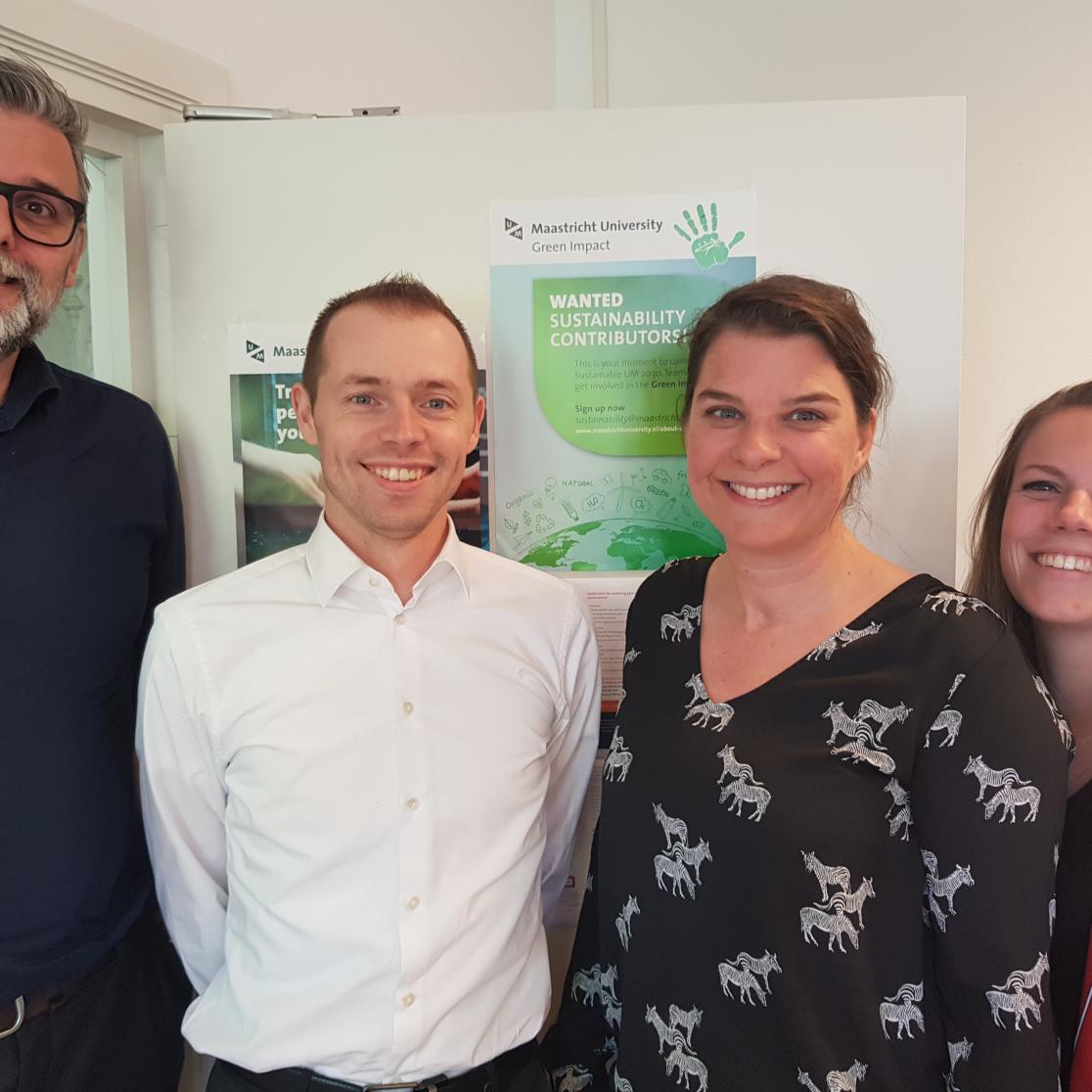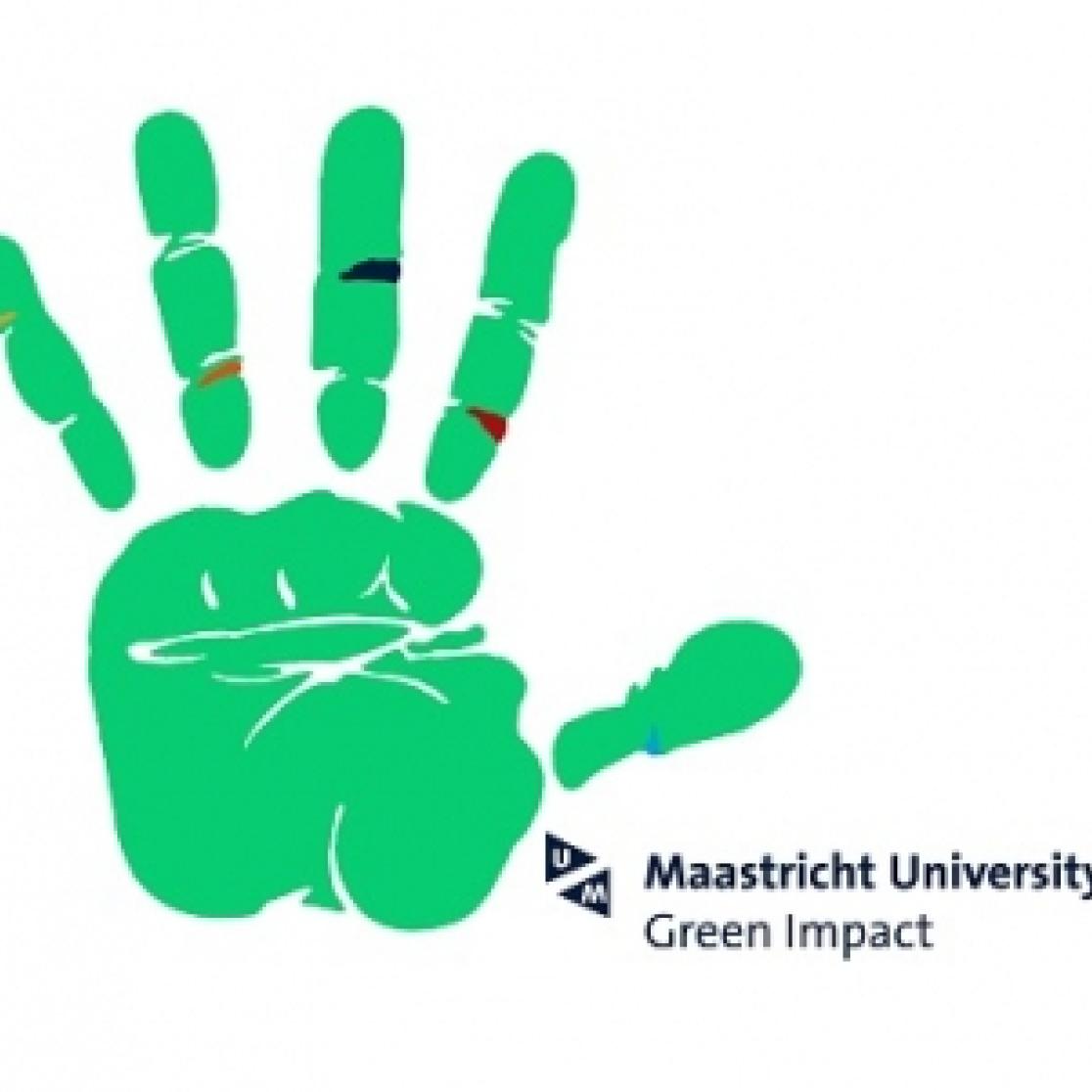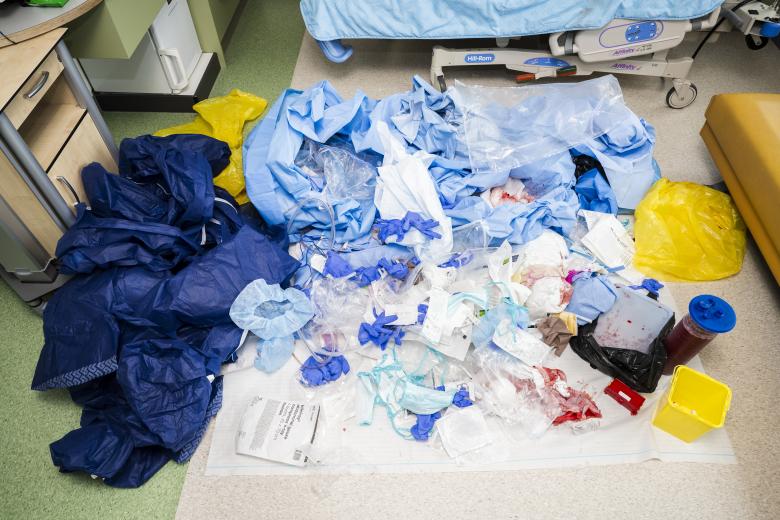Impact over Image
The finishing line of Green Impact, UM’s sustainability competition, is fast approaching. The Faculty of Science and Engineering’s team is doing very well - even if their numbers-based approach at times fretted against the general focus on awareness over solutions…
FSEco is the team taking part in the Green Impact Challenge on behalf of UM’s Faculty of Science and Engineering (FSE). When their director Bakir Bulic heard about the competition, he was enthusiastic and competitive from the get-go. “He told people about it during our weekly faculty meeting and we had a team together in no time,” remembers Frederique Fraats, FSE’s secretary to the dean and director.
Initially they thought it would be a (vegan) cakewalk: FSE is involved in Brightsite, a cooperation of, among others, UM and Brightlands to make the Chemelot campus more sustainable. “We assumed that alone would give us enough points to win the competition,” laughs Fraats. As it turns out, that doesn’t count. And so the team used a science and engineering mind-set to come up with other ideas – and some criticism too.
Looks green – but is it?
“Our dean was a bit critical of the green lunches; after all, they come from a catering company, which means a lot of extra packaging and a lot of food waste if people don’t finish the plates, etc.,” remembers student assistant Romy van den Akker. FSE now prepare their own seasonal and local vegetarian lunches at home and will make arrangements with the salvation army to avoid food waste from catering.
“We wanted to scientifically substantiate all our sustainability actions,” explains Mariette Wennekers, FSE’s Coordinator Marketing and Communications, “and it would be great if Green Impact did the same next time around, along with measuring the actual impact.” In the brainstorm, they discussed things like blackle.com, a darker, energy-saving edition of google, and how much ink could be saved by changing fonts to e.g. Century Gothic.
Green roofs and vistas
The strengthening of UM’s science profile will see FSE move to bigger facilities next year. Fraats remembers a brainstorm on sustainability related to the move: “We talked about obvious things like LED lights and insulation, but also about green rooftops, which would make a difference in terms of climate.” Thomas Cleij, FSE’s dean, adds: "Investing in the sustainability of UM’s buildings – insulation, lower energy consumption and the use of circular materials – would make the big difference."
Until they complete the move, the team have ordered a bike people can borrow to go to meetings in Randwyck. They also tried to make people aware of the difference in carbon footprint between cycling, public transport and going by car. “It sounds quite banal but I have noticed that, even in the weekends, I now think twice about whether I really have to use the car,” says Fraats.
While one can be sceptical of the symbolic nature of Green Impact, it is, to many people, a good reminder to think structurally about sustainability.

Final lap – first chapter
30 April is the last chance for teams competing in the Green Impact Challenge to submit actions. After that, students will audit the output of the teams and calculate the results. The winners as well as the plan for the next Green Impact cycle will be revealed during an awards ceremony on 21 May. UM plans to honour the critical voices too. They will collect feedback to improve the second round of the competition in the next academic year.
Green Impact, which has been introduced during the Opening of the Academic Year, is only one of a series of initiatives set out in UM’s sustainability strategy and belongs to the operational pillar. This year’s focus is operations – research and education are to follow. A taskforce consisting of academics, students and staff was set up this academic year to coordinate UM’s sustainability efforts.
For any questions, you can contact sustainability@maastrichtuniversity.nl.

Also read
-
Harm Askes: “Helping people excel, no need for showmanship.”
Harm Askes, the new vice-dean of FSE “Let’s continue building a faculty where talent shines: no ego, just impact, collaboration, and curiosity."

-
DigiMach: Digital Transformation of the Machining Value Chain for Sustainable Growth
DigiMach is a transnational 3-year collaborative approach that will transform manufacturing across the Meuse-Rhine region by bringing AI, IoT, and robotics to small and medium-sized enterprises in the machining sector. The project will assist more than 150 SMEs to adopt smart, digital tools, through...

-
Hospital plastic gets a second life: €3 million grant opens door to greater circularity in healthcare
What began as a local pilot in the operating theatres of Zuyderland Medical Centre has now grown into a European initiative with global potential. The mission: to stop burning clean plastic in hospital waste and instead recycle it into high-quality materials for reuse in medical applications.
